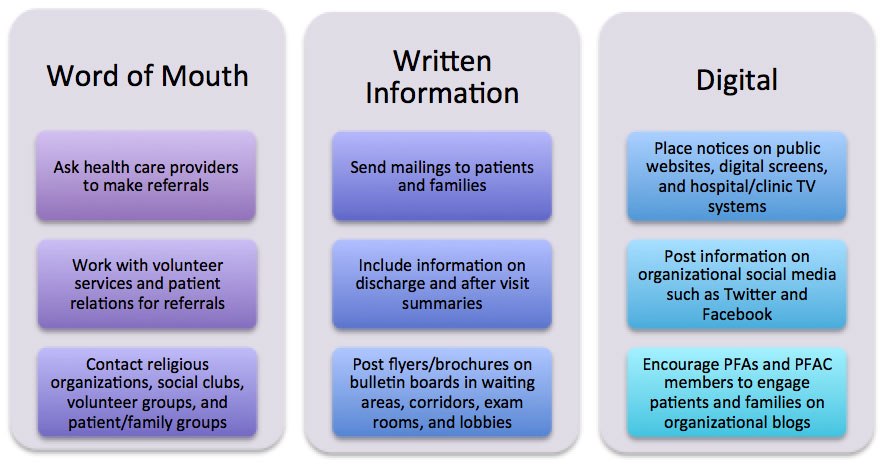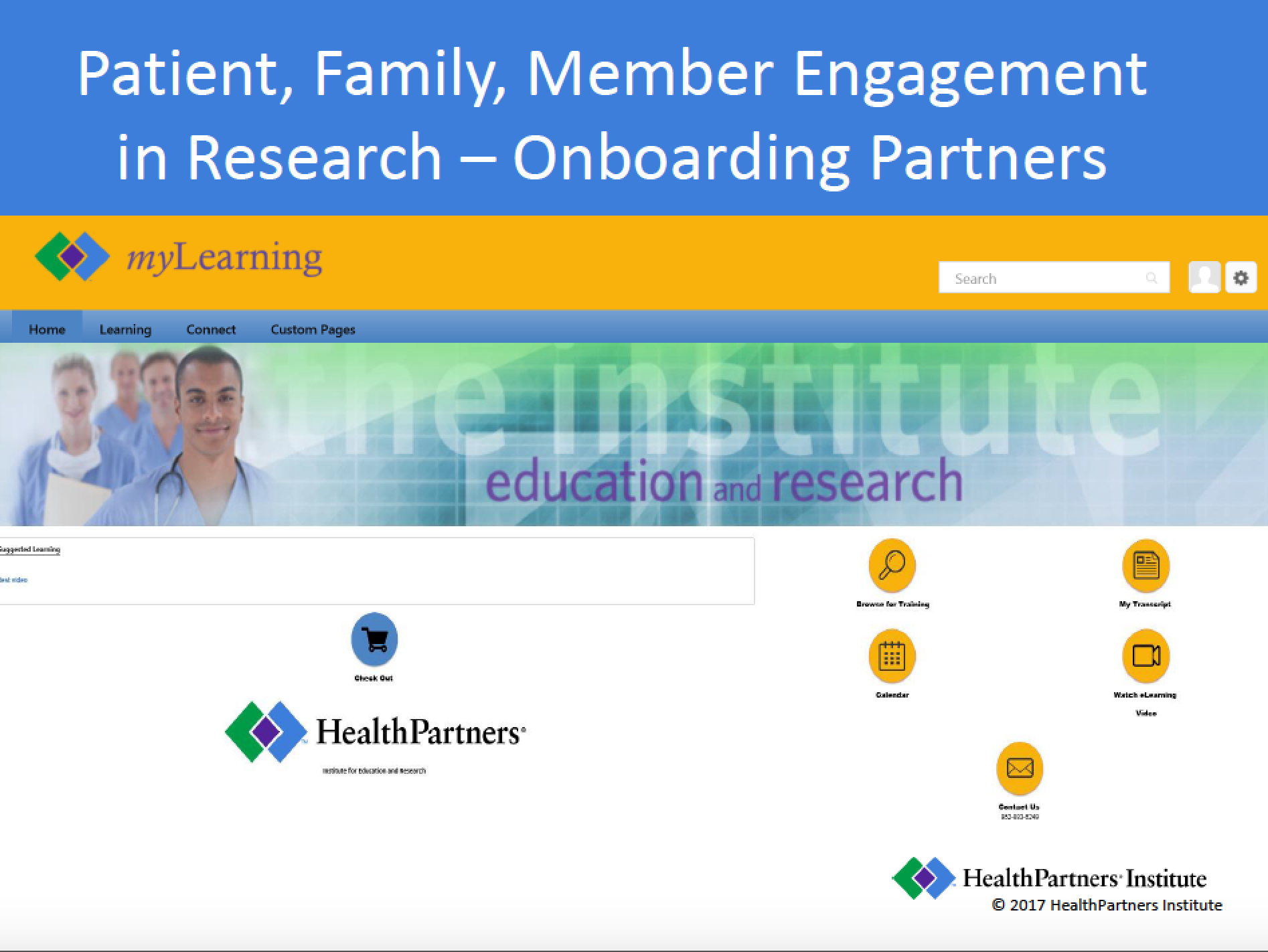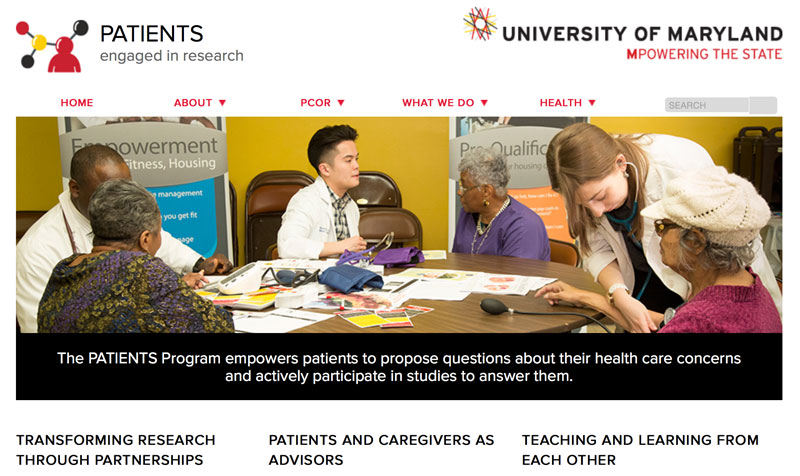Finding patient and family advisors to partner in research is an ongoing task for staff liaisons and researchers. Once research partnerships begin at an organization, they typically expand quickly. It’s important to have PFAs who are ready to join a project at the initial planning stage or can replace a PFA who may have to take a leave from a project for family or health reasons.
Seek out those who bring diverse backgrounds, experiences, and perspectives. If you have a PFAC or patient and family advisory program, determine whether PFAs reflect the community your organization serves. If not, you may need to recruit additional patients and families from the community. This can be done through:
- Creating trusting relationships with patient advocacy groups and leaders of community organizations.
- Convening focus groups and town halls in the community to discuss potential research and opportunities to partner with researchers.
- Working with community leaders to identify individuals who may have an interest in research or a particular topic.
When recruiting, create messages and materials that provide a clear explanation of the research project or a research program in general, how much time will be required of PFAs, and if compensation or reimbursement for expenses will be provided. Methods of recruiting PFAs should be varied and include:

Once you have interested PFAs, matching them appropriately to research projects is key. Gauge research partnership “fit” by learning about a PFA’s availability, personal experiences, skill-sets, and interest in science, data, and research. This can be done prior to their onboarding as a PFA by including questions about interest on PFA applications. Or staff liaisons or PFAC chairs can ask advisors as they get to know their interests and skills.
PFAs who excel at research typically are:
- Responsible and dependable
- Open-minded, flexible, and willing to think creatively
- Able to think from multiple perspectives and not only from their experiences
- Experienced with groups and teamwork
- Confident asking questions and speaking with health care professionals
- Interested in science and data (does NOT have to have research expertise)
- Solution-oriented
- Patient and understanding when changes move slowly
- Personally satisfied in “giving back”
Highlight from the Field: HealthPartners Institute

HealthPartners Patient Engagement Team has over 30 active patient partnerships that are engaged as PFAC members, individual advisors on research teams, and as co-investigators. To create processes for effective relationships, HealthPartners Institute has created a toolkit that includes a planning checklist and available resources and templates that define roles, help recruit, interview and train advisors, and provide answers to IRB and compliance questions and considerations. Toolkit materials are available in a PowerPoint presentation that was shared during IPFCC’s 7th International Conference on Patient- and Family-Centered Care held in New York City in July 2016.
Highlight from the Field: University of Maryland School of Pharmacy
The Agency for Healthcare Research and Quality funded a five-year (2013-2018) infrastructure development grant for PCOR housed at the University of Maryland School of Pharmacy and includes all seven University schools and eight non-university partner organizations. The overarching goals are to build the infrastructure to enhance existing partnerships, conduct research together, and then share findings broadly with the communities involved in the research.
The PATIENTS Program (Patient-Centered Involvement in Evaluating the Effectiveness of Treatments) was created as an essential part of the infrastructure development. One example of the partnerships with the community is with the Mt. Lebanon Baptist Church, located in the Mondawmin neighborhood at the epicenter of Baltimore’s civil unrest in 2015. As a research project is being conceptualized, a team member reaches out to the Pastor of Mt. Lebanon Baptist Church and asks him to identify a patient or family member living with the condition relevant to the research and request his or her involvement in the project. Together they participate on the Steering or Advisory Committee from the beginning of the project and reach out to others in the community at various stages of the research. For further information, visit their website and see how they celebrated their efforts.
